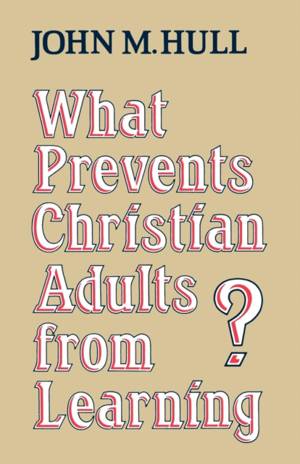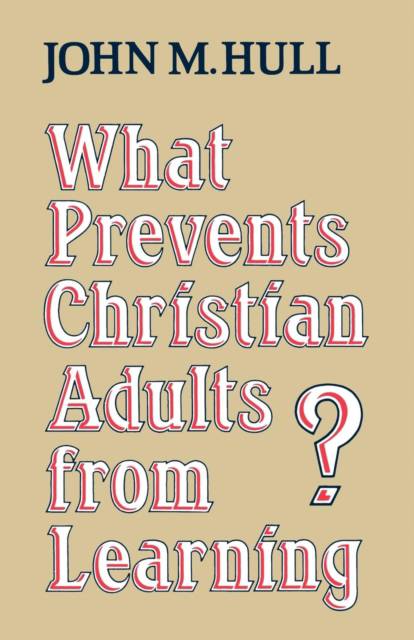
- Retrait gratuit dans votre magasin Club
- 7.000.000 titres dans notre catalogue
- Payer en toute sécurité
- Toujours un magasin près de chez vous
- Retrait gratuit dans votre magasin Club
- 7.000.0000 titres dans notre catalogue
- Payer en toute sécurité
- Toujours un magasin près de chez vous
48,95 €
+ 97 points
Description
Many adults in the churches find learning difficult. They may not be able to understand, for example, how the church has developed through history and in a time of rapid social change will continue to develop in many ways. They may find intellectual formulations of belief difficult to comprehend, attitudes -- like those who argue that the church must be involved in politics -- difficult to accept, and patterns of behaviour difficult to adopt. Evidence of this is the way in which after more than two centuries, some of the most basic assumptions of modern theology are alien to the average congregation. Adults who find learning difficult may be parents, who ought to be able to teach children; they may be clergy and teachers, who ought to be helping to remedy the situation. They are often criticized; they also need to be understood. This book is for them. What John Hull has written is a study in practical theology but it adopts an inter-disciplinary approach, drawing on sociology, social psychology and psychology, as well as theology. It considers the nature of Christian education; the problems of education in what is inevitably an ideological community; the deep-seated human need to be right and the pain of learning; and the way in which faith must evolve along with the self. There is no other book quite like it, and it represents a most important breakthrough relevant not only in church and school, but also in a wider social context.
Spécifications
Parties prenantes
- Auteur(s) :
- Editeur:
Contenu
- Nombre de pages :
- 256
- Langue:
- Anglais
Caractéristiques
- EAN:
- 9780334017844
- Date de parution :
- 30-04-12
- Format:
- Livre broché
- Format numérique:
- Trade paperback (VS)
- Dimensions :
- 140 mm x 216 mm
- Poids :
- 299 g

Les avis
Nous publions uniquement les avis qui respectent les conditions requises. Consultez nos conditions pour les avis.






